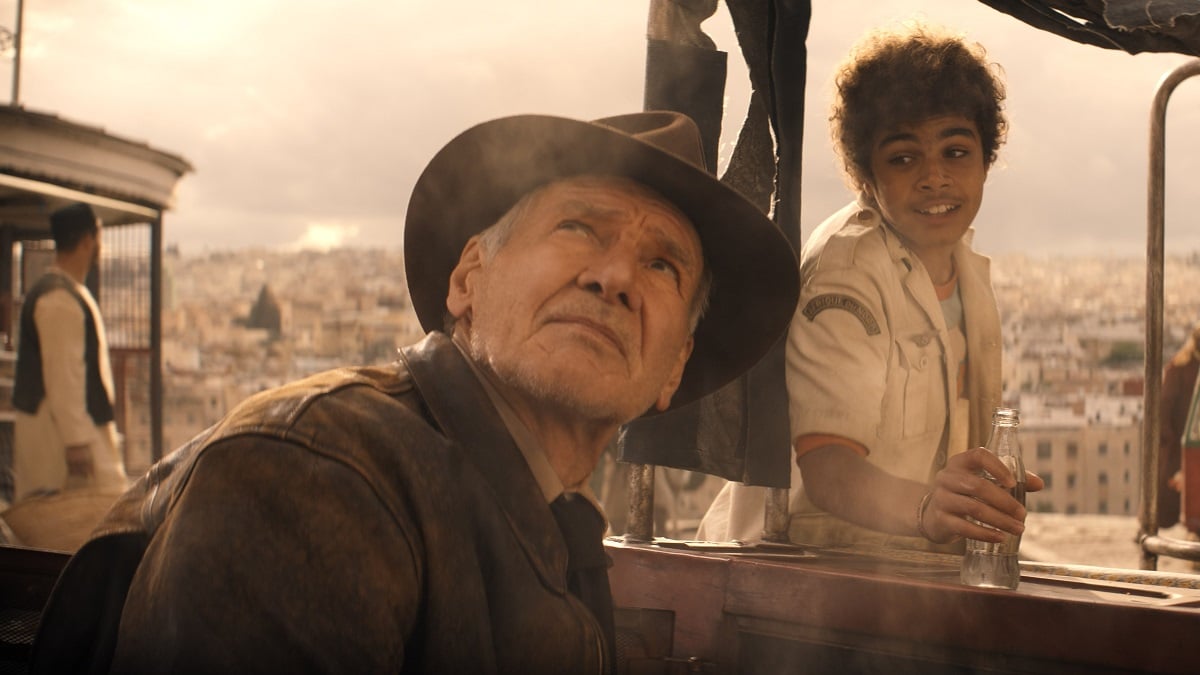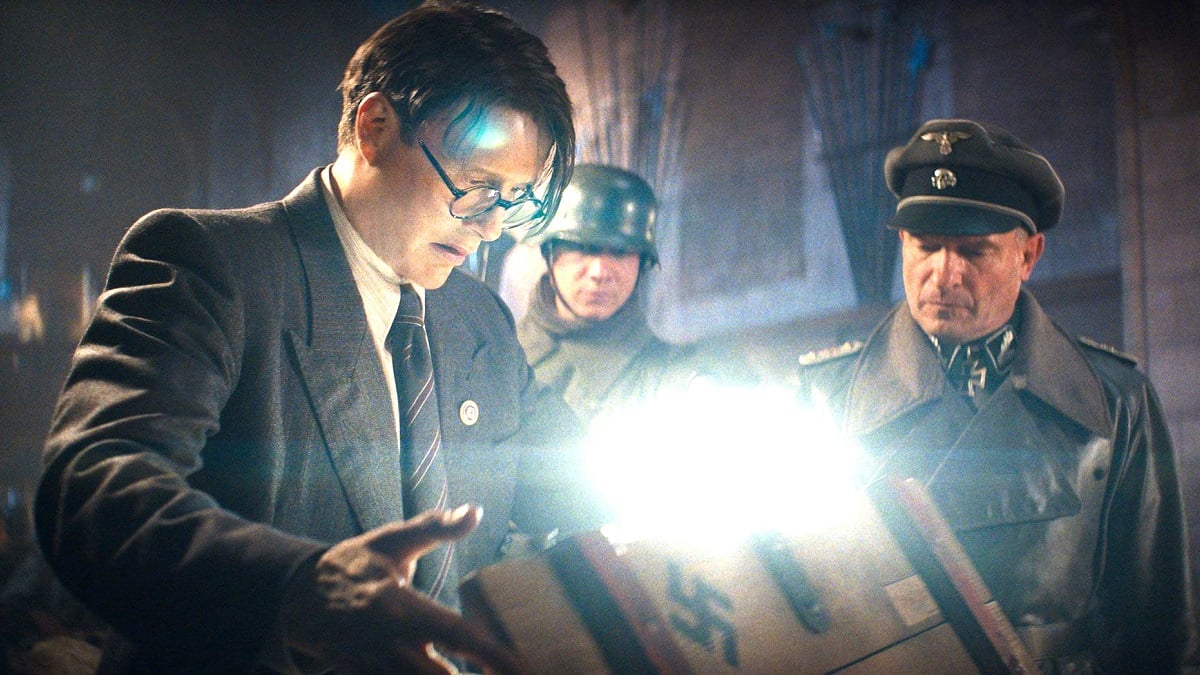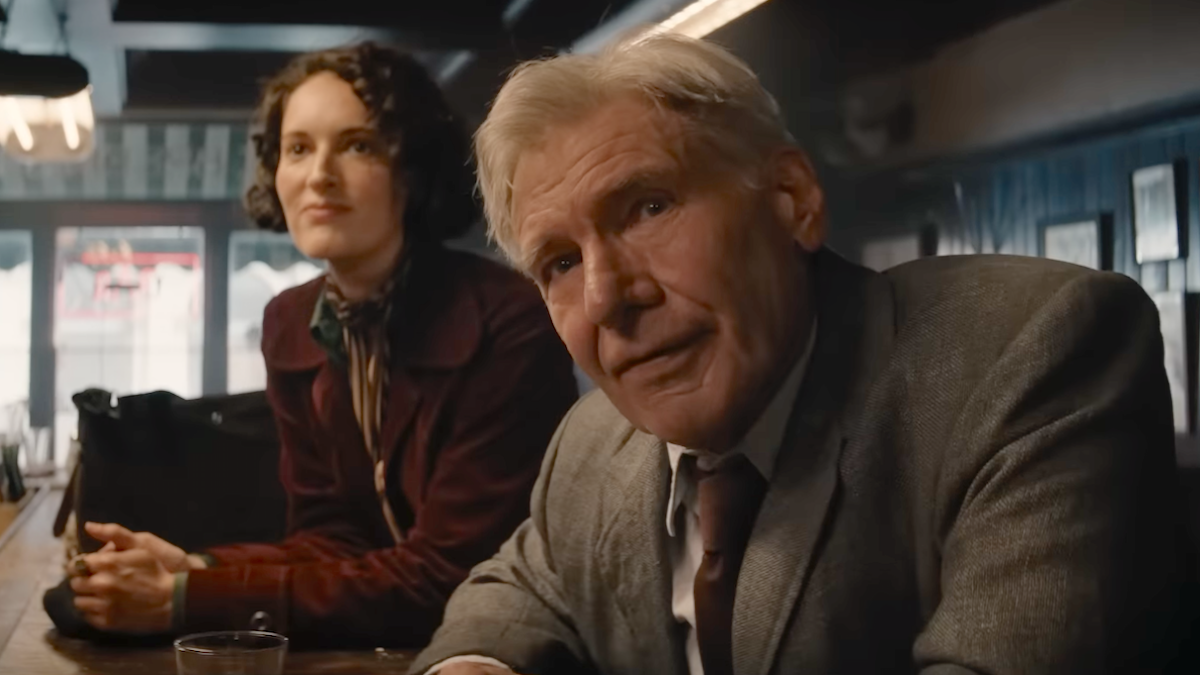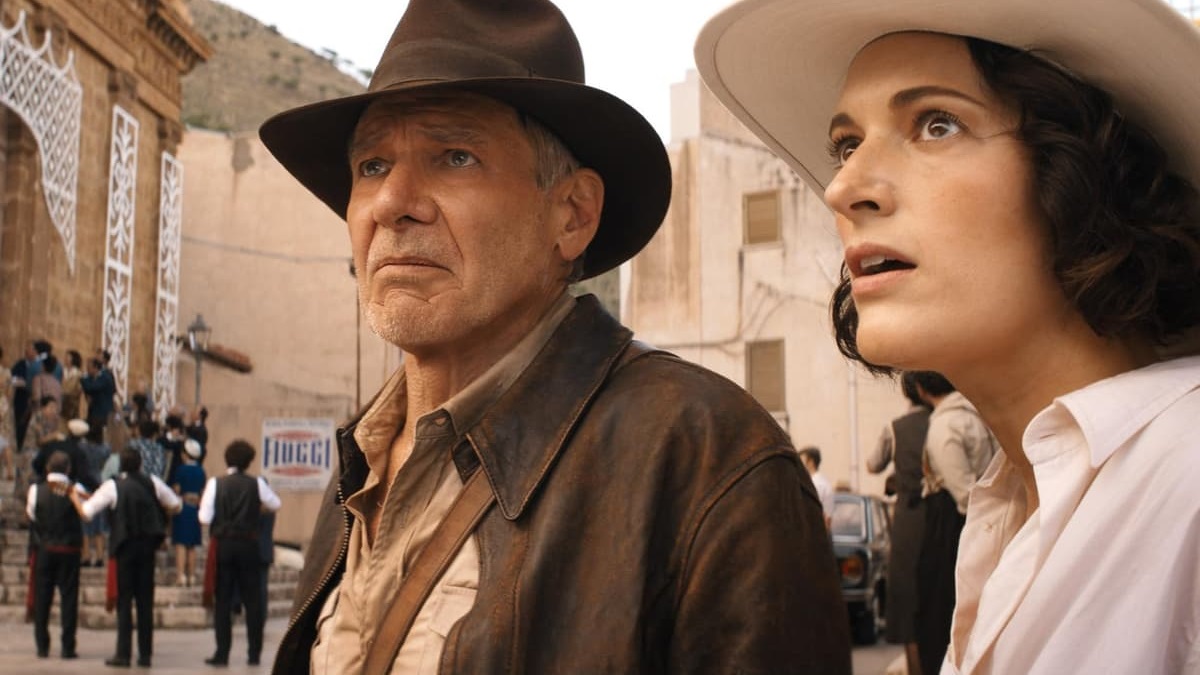Even though the original trilogy ended on a perfect note that literally saw the title hero ride off into the sunset, the laws of Hollywood dictated that Indiana Jones must return until Harrison Ford doesn’t want to do it anymore. Of course, an additional two sequels in the space of 33 years is hardly milking a cash cow for all it’s worth, but Indiana Jones and the Dial of Destiny has been so long touted as the legendary adventurer’s final outing that it finds itself under huge pressure to deliver.
Is it a grand finale befitting a character who can by all accounts be called one of the greatest and most iconic cinema has ever seen? Not exactly. That being said, the fifth installment in the globetrotting series does deliver solid blockbuster action and plenty of nostalgia, with Ford slipping back into one of his two signature roles with the greatest of ease.
However, it’s worth pointing out that CGI is quite possibly the worst thing that’s ever happened to the Indiana Jones franchise, and Dial of Destiny only compounds the matter. While things aren’t quite as egregious as the infernal gofers, fridge-nuking, poorly-rendered aliens, and Shia LaBeouf swinging on vines that blighted Kingdom of the Crystal Skull, there’s nonetheless a constant air of artifice to almost every major sequence spread out across the film’s butt-numbing 154 minutes, with that $295 million budget doing nowhere near enough to overcome some sketchy green-screens, unconvincing backdrops, and the much-heralded de-aging that actually does look pretty good… until Indy opens his mouth.

Bugbears aside, Dial of Destiny opens with a rollicking extended chase set at the tail-end of World War II, that does a decent job of dropping audiences into the narrative with a bang, establishing the stakes of the plot that carries right through to the final act, and marking the dots that will eventually connect all of the major players in one way or another.
Young-ish Indy is partnered with Toby Jones’ befuddled professor Basil Shaw (the father of Phoebe Waller-Bridge’s Helena), to retrieve the spear that pierced the flesh of Jesus Christ from the Nazis. In a meta rug-pull, that MacGuffin turns out to be a fake, but the real MacGuffin – the Antikythera crafted by ancient jack-of-all-trades Archimedes – just so happens to be on the very same train as the aforementioned duo and Mads Mikkelsen’s Jürgen Voller.
Fast forward 25 years, though, and Indy is no longer the man he used to be. Older, living alone in a ramshackle apartment, pouring booze into his morning coffee, and preparing for retirement, his feats of derring-do decades previously haven’t yielded any tangible success on either a personal or professional level, but he ends up saddling up for one more adventure when Helena comes back into his life to finish what her old man started and recover both halves of the Antikythera.

Naturally, Voller is back on the scene as well, having been welcomed into NASA with open arms under an assumed name and helped put man on the moon. Mikkelsen has been Hollywood’s go-to villain for what’s arguably been too long, but he’s never played a Nazi before, and it’s clear he’s enjoying himself getting to do so. His motivations are fairly one dimensional – use the artifact to rewrite history and ensure Germany wins the war – but the actor’s signature malevolent charisma and sinister charm make it work.
Make no mistake, though, this is Waller-Bridge’s movie almost as much as it is Ford’s, and the Fleabag creator is more than up to the task. As much as the “child seeking to accomplish what their parent couldn’t” has become beyond cliche in the world of legacy sequels, the actress’ bright and breezy performance that sees her trade wits and blows in equal measure is a star-making turn.
She bounces off Ford, he bounces right back off of her, and they’ve got chemistry for days. Sure, it’s the grizzled veteran being teamed up with the conniving upstart for the umpteenth time in a globetrotting action spectacular, but it’s easy to give it a pass when the pair are having so much fun sparring onscreen that it plays exactly the same to the back row of the multiplex.

The downside is that those are the only three characters in Dial of Destiny that really matter. Boyd Holbrook doesn’t get an awful lot to do besides follow orders, Shaunette Renée Wilson’s federal agent gets even less to work with, Ethann Isidore’s Teddy is the surrogate Short Round who seemingly exists specifically to drive the plot forward at essential moments, and John Rhys-Davies’ returning Sallah is nothing but pure fan service.
On the filmmaking side, director James Mangold has been telling anyone who’d listen that he wasn’t interested in rewriting the Indiana Jones playbook when becoming the first person other than Spielberg to step behind the camera, but that doesn’t always prove to be a positive. The brains behind Logan obviously knows how to send a superstar protagonist out in style, but he doesn’t inject enough of his own into the proceedings.
There are booby traps, cave systems, puzzles, the requisite map sequence, Nazis getting punched in the face, and plenty more hallmarks besides, but on occasion it feels like a Spielberg tribute act that’s happier cribbing from the master’s playbook than building upon it. If you’ve seen one Indiana Jones movie, then there isn’t going to be anything that surprises on a visual, narrative, or even thematic level seeing as it’s been 42 years since we first discovered it wasn’t the years, honey, but the mileage. At least, until the absolutely bananas final act.

Many rumors have flown about what exactly the titular Dial of Destiny is and what it does, and while there won’t be any spoilers here, you can guarantee it’ll split opinion right down the middle. Fair play to Mangold and co-writers Jez and John-Henry Butterworth for throwing caution to the wind – because it’s bonkers in a swing-for-the-fences kind of way – but it’s very easy to imagine that it’ll jump clean over the shark for a lot of people.
The trolls can rest easy, too, because it doesn’t end with Waller-Bridge being set up as the new figurehead of the franchise, although there is a nice sense of closure that brings things full circle. Indiana Jones and the Dial of Destiny is an entertainingly effective slab of glossy escapism that ties a bow around the legacy of both the brand and Ford’s tenure under the fedora, but it doesn’t feel like a farewell worthy of the character. Solid if unspectacular was the bare minimum, and it passes that test with flying colors, but it still doesn’t quite feel like enough.
Fair
'Indiana Jones and the Dial of Destiny' is a solid action-packed blockbuster that ticks all of the franchise's required boxes, even if it isn't quite a farewell worthy of a cinematic icon.

